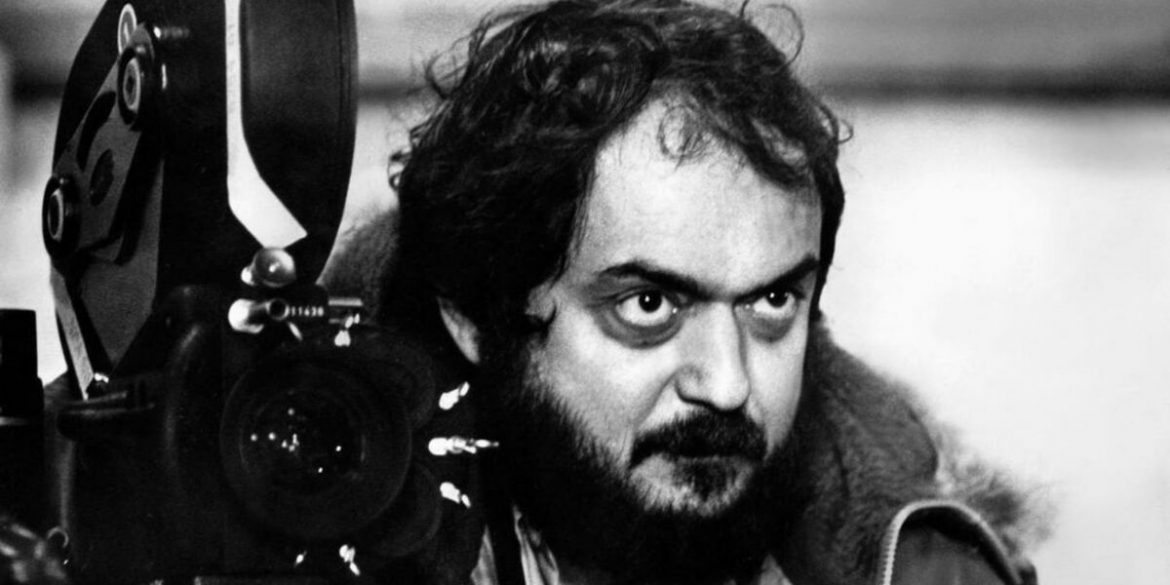Calling all cinephiles! The 12th edition of ICMForum’s Favourite Directors is upon us. The deadline is the 8th of January, and if you are reading this you are cordially invited to submit your list.
All you need to do in order to participate is to sign up to our community forum and submit your list in the thread dedicated to the ICM Forum’s Favorite Directors 2022 poll.
Lists may be of whichever size you prefer, and may be submitted as ranked, unranked or with group rankings. There is no minimum or maximum length requirement to your list, though it is worth keeping in mind that the point half-life is position 29.
The list should be submitted as an IMDb list, but can alternatively be submitted in the form of plain IMDb URLs.
If you wish to vote for director duos, there is a guide in the thread linked to above showcasing which of the directors you should include. For instance, if you wish to vote for Powell & Pressburger, please vote for Michael Powell. The representatives for the Coens, the Dardennes, the Maysles and Huillet & Straub, are Ethan Coen, Jean-Pierre Dardenne, Albert Maysles and Danièle Huillet respectively.
If you have any questions about the process, feel free to ask in the comment section below or on the forum.
Previous Results
Over the last 11 editions, we have only seen three directors hold the coveted number 1 spot. These are Stanley Kubrick, who has won 7/11 editions, Alfred Hitchcock, who has secured 3/11 and Ingmar Bergman, whose sole win came in 2018. The current top 10 is as follows:
1. Stanley Kubrick
2. Ingmar Bergman
3. Alfred Hitchcock
4. Akira Kurosawa
5. Martin Scorsese
6. Andrei Tarkovsky
7. Billy Wilder
8. Luis Buñuel
9. Orson Welles
10. Ethan Coen
Full results of our top 200 directors from the 2021 edition.
Never Ranked Directors Before?
How do you approach ranking your favourite directors? Is it a special connection you feel to their work? An appreciation of their style and craft? The number of films they have on your list of favourite films? An assessment of their career as a whole? Or, could you be going down the breezy path of the average rating?
The first thing to remember is that this is personal and that we have specifically chosen to refer to the purpose of the poll to name “our favourite directors” and not “the greatest directors” or the “most influential directors”. There are no right or wrong answers here, and the rankings to not need to be precise. You can put as much or as little thought into your list as you see fit.Easy right?
Well, yes and no. Depending on how you decide on who’s your favourite directors there are quite a few more variables in play than when we rank our favourite films. For instance, did the director have the same degree of creative freedom and control in each film, and should films where they had limited freedom count less? Is it simply the quality of the film that matters, or do we try to isolate the role of the director, for instance in terms of what they managed to do with limited funds or weak material?
Oh, and then we have the elephant in the room: How many films of any given director on your list have you seen, and would it affect how you rank them if the next 5-10 films you see from them are subpar?
Below, I will look at a few of the most common ways of ranking directors and look at the pros and cons of each method.
Method 1: The Average Rating

If you feel uncertain about how to rank directors, why not let math decide for you? All second-guessing and heartbreaks can be neatly compartmentalized by using cold, hard numbers. This is one of the most common ways of ranking directors for a reason, and if you have an account on a website like Criticker you can see the average rating of each and every director without putting in any work of your own.
Of course, many take this further, either by spending hours tallying up the average ratings themselves or by creating extended formulas to “fix” certain issues they see in the average rating. These “formulas” can be as simple as removing the lowest rating once you have seen 5 or 10 films by any given director, to extensive spreadsheet formulas to find a fair weighted rating.
Regardless of how complex you make it, the result is the same, leading to average ratings that make your rankings fixed and solid, potentially in seconds. These numbers are immovable unless you change the ratings of the individual films or add more, and just like that, the task is complete.
Pros:
- Potentially quick
- A decisive formula that creates your entire ranking for you
- No critical thought is necessary
Cons:
- Gives the director full credit for the strengths and weaknesses of every film
- Values each film equally
- A single weak film can change your rankings drastically
- Can punish directors with larger filmographies, even if they mainly make great films
- Feelings, reflections and assessment of the director’s career is entirely removed
Let’s go through these cons in a bit more detail, starting with the idea, often tied to auteur theory, that the director is at the end solely responsible for the overall quality of the film and all its attributes. This is clearly very often false, especially looking at Hollywood where the producers and studios are often heavily involved in the production and often act as the project manager.
Worse yet, each film here is valued the same. A director who started working inside the studio system without too much choice of material or creative input, before showing their skill and getting more freedom, will be punished for the early work existing at all. Similarly, directors falling on hard times, or entering a recession, take Francis Ford Coppola as an example, after his studio folded in the early 80s, will be judged just as harshly on Peggy Sue Got Married as Apocalypse Now.
Stanley Kubrick has won the majority of our previous editions, but how many rank him lower because of the student film he himself tried to destroy, Fear and Desire? That single weak film, especially if you hate it, could drastically alter his position on your list.
In a more extreme and to me, unfair way, directors can also be punished for making great films. Say you are choosing between two directors and each made five films you considered masterpieces, yet one only made 10-15 films in their career, most great, while the other made 30+ in their career, again, to you, mostly great. Following average rating systems and even weighted rating systems, the latter would lose out. Yes, lose out by making films you love.
Going by an average rating also completely removes any sense of love for the director’s style, craft, journey, etc. as well as your feelings for their respective films. If you for instance agree with Kenji Mizoguchi, who stated he did not feel he had reached artistic maturity until 1936, when he released both The Sisters of the Gion and Osaka Elegy, where does that leave him? He had made about 70 films by that point and while it may be lucky for him that most are lost there are still quite a few of his works to bring down his average rating. Meanwhile, in his final decade, he had one of the most consistent victory laps of any director, cementing his instantly recognizable style and his position as a master.
The same question can be asked in relation to his contemporary, Yasujiro Ozu, who slowly perfected his style film by film, and slowly centred in on key themes as he examined familiar relations, norms and traditions within Japanese society. When we talk about our love of Ozu, how many of us are talking about his early gangster films?
Furthermore, honing in on unique visions, forms and styles, should directors who truly stand out from the crowd and almost create their own languages get no extra credit or adoration?
And what about honouring experimentation, even when it doesn’t work? Do we blame directors who try something new, or perhaps go a little too far into the unknown and outside their comfort zones? Can honourable failures not increase our admiration for a director? The average rating simply strips everything away.
Method 2: Number of Favourites

Does failure not matter to you? Is all that matters the strengths? Well, in that case simply going by the number of favourites, or if you wish to expand it to great or even “just” good films, may be the option you have chosen to go with. And why not?! If you think going by your average rating is the fastest, wait until you try this method.
If you have a list of favourites, simply sort them by the number of favourites you have from each and you are close to done. You can quickly overlook the contest of the math by giving your top favourite films extra weight, move up directors with films in your top 10, top 100, etc. and within a very short time have a list of directors who have made a lot of films you just love.
This method is by no means without pitfalls, but it is partially akin to how TSPDT assembled their list of the top 250 directors.
Pros:
- Quick
- Focuses on the directors who are behind your very favourite films
- Little critical thought is necessary
- Focuses on strengths, not weaknesses
Cons:
- Focuses on strengths, not weaknesses
- A relatively small number of films may decide how you feel about a director
- Gives the director full credit for the strengths of their best films
- Feelings, reflections and assessment of the director’s career is entirely removed
You may notice that I have left one item in both the negative and positive columns, “Focuses on strengths, not weaknesses”, and this also ties in with the second negative. Those who follow this method will ignore every bad and mediocre film a director ever did. Let’s use Francis Ford Coppola as an example again, but in the opposite direction. The 4 films Coppola made back to back in the 70s are generally held high in any film canon, and you have all four as favourites, but if you were generally disappointed by everything he did before and since, should this have no impact?
There are also directors who rather than growing into their own voice, such as the previously mentioned Yasujiro Ozu and Kenji Mizoguchi, were rather hit-and-miss throughout their careers. Is a director who you would never quite know the quality standard their next film would have really worthy of being at the top of your list?
Or, how about directors from whom you only like a specific period? As a die-hard Jean-Luc Godard fan, eager more than anything to even talk down his work in the 60s compared to his later marvels, how many may end up voting for him on the back of only loving, or perhaps only seeing his strong of 1960s classics? To what extent, if any, should films that did not quite work for you matter?
Then there is once again this nagging issue of what the director brings to the table. This method assumes that the films you hold up as your very favourites are your favourites primarily due to the director’s input. Is that always the case?
And of course, just as with going by average ratings, simply looking at the number of favourites or great films a director helmed, removes any thoughts you have on their overall career, craft, style, progression, etc.
Method 3: Assessment of Their Craft, Voice, Skill and Impact

If your aim is to be as nuanced as possible, looking at each director and assessing their work, how much you personally connect to it, and your appreciation and response to their craft, skill and style, may be the way to go.
This approach allows you to reward directors who slowly progress and find a voice, as well as reward directors who always/usually elevate their material even when little is there. The respect you feel for the director, rather than the films, is taken into account, as can the enthusiasm you feel when you put on any of their films.
The inspiration they may have filled you with is granted, and any limitations they may have faced are, to the extent they are understood, accounted for. Their contribution to the medium, and elements of their films that deeply matter to you, equally so. Their directorial voice, how different from what else is out there, and perhaps even their particular perspective and deeper meanings and contributions can all play a central role.
Pros:
- Aims to value the director rather than the films
- Takes all your feelings and thoughts into account
- Even exciting failures can work to a director’s advantage
Cons:
- Can result in more difficult deliberations and less clear rankings
- The impact the director had may be difficult to asses
- May have too many variables
If you are a very methodical person and wish to be as accurate as possible, this approach may turn out to be hell, as there are just too many variables. Many may even find that a lot of research is necessary. If this is how you feel, abandon ship with this approach, or less certain emotions seep in to influence lists created by other methods. However, if you are a very emotive person, who feels strong connections to certain directors and their work, using this emotion in your rankings may come as second nature.
Method 4: All of the Above
Of course, it is possible to combine the above, and many other methods, without losing sleep, again, as long as you don’t make it too complicated. That is to say, take the average rating (or an average assessment of a filmography), the number of favourites and great/good films and well as your opinions/feelings on the director beyond stats and numbers into account. Rankings are never set in stone, and you can use any method to get a shortlist, which you can then rank exactly as you see fit by whichever standards you value.
Method 5: Your Method?
If you have additional methods of ranking your favourite directors, let us know in the comments below or on the forum. The same goes for tips about what websites make these kinds of ranking projects easier.
Hope to see you and your list on the forum.
Christoffer Odegarden is the co-founder and editor-in-chief of iCinema Magazine. He is also the host of the bi-weekly cinephile podcast Talking Images.








